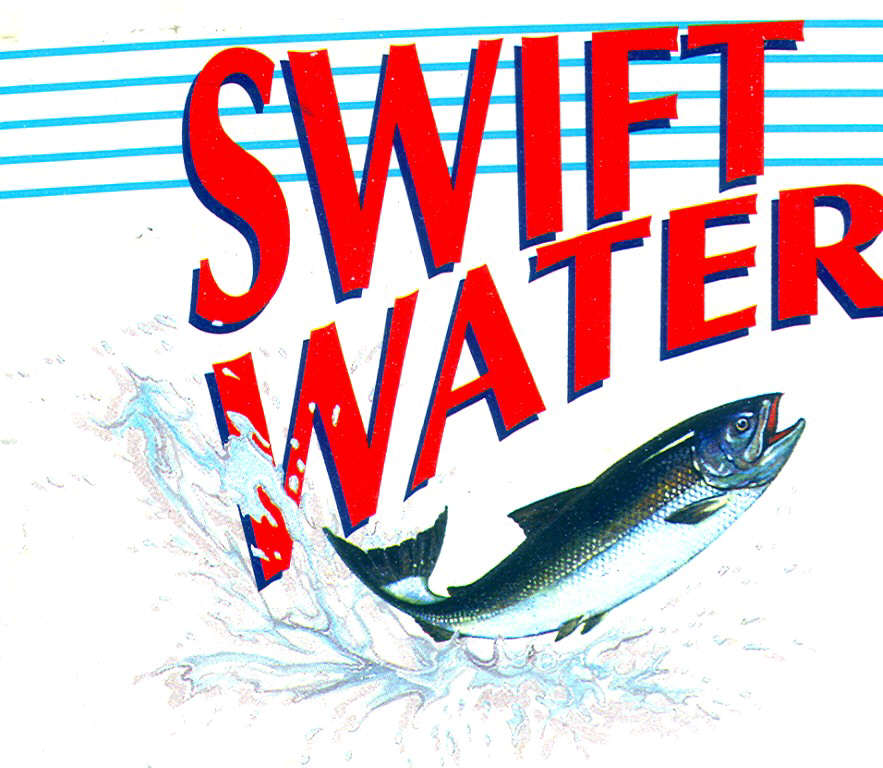
Home Page
Created 27 January 2005
12 September 2005

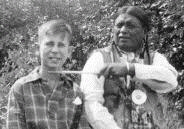
Tommy Hahn with a Knife to the Throat by a Ute Indian in Green Mountain
Falls, Colorado about 1938. I learned at an early age
that it is best to show respect to all people. (Thomas Hahn Collection)
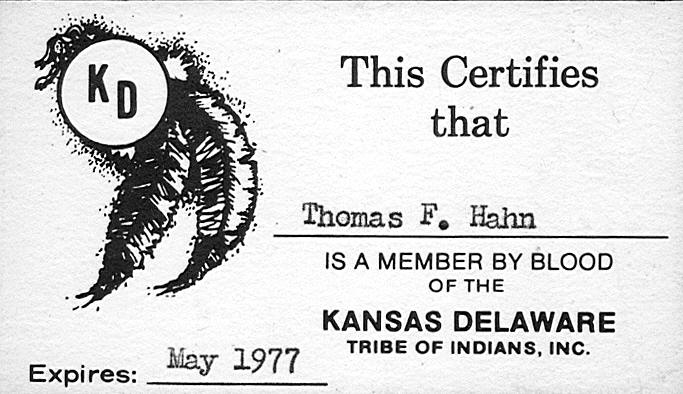
Kansas Delaware Tribe of Indians
Membership Card
Swift water's Indian Shop
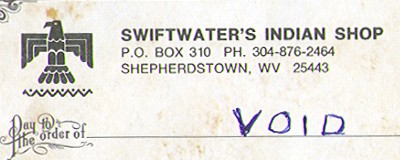
For several years, when we lived on 6 South Church Street in Shepherdstown, West Virginia. I had a small Indian Shop where I sold mostly Native American handicrafts and a few artifacts. It was virtually a small museum. I never tried to make money out of it except what I gave back to Native Americans in need or for items that I eventually donated to several museums. It was a very small enterprise in a couple of rooms that were made up for that purpose in our ample garage. When we moved to just outside Shepherdstown and then later back on the edge of town, I always had a few items for trade or sale but not an actual "Shop," zoning restrictions. For several years I went to El Paso, Texas; Mexico, Guatemala; Honduras; and Costa Rica seeking items of interest. These "expeditions" were coupled with the interest I had in studying Mayan ruins in those countries, except for El Paso, of course. As an extension of this effort, I sometimes had a "Trading Post" at the Shepherdstown Men's Club where I sold items from the shop and others had tables where they could sell whatever they wanted as a small fundraiser for the club and for fun and general interest.
During this period I did a lot of looking for Indian artifacts in the Eastern Panhandle of West West Virginia and in Maryland, mainly along the Potomac and Shenandoah Rivers. Many wonderful days were spent in the company of my friends John Ingalls (now deceased), Director of the Jefferson County Museum and Chris Branch, both of Shepherdstown. They had introduced me to the hunting to the hunting of Indian relics and were always completely sharing in their knowledge and knowing just where to go to look. Through these foraging expeditions I accumulated a large collection of local artifacts. John and I often traded for the things that we found or for the things that we had obtained in trading with others. While all this was going on, I was involved in the preservation of Native American Archaeology in the Eastern Panhandle and for years was the President of the Eastern Panhandle Archaeology Society located in Martinsburg. In the end, most of my collection went to museums where they could be enjoyed and studied by others.
My local Shepherdstown Collection went to the Historic Shepherdstown Commission Museum located at the Entler Museum; the artifacts from along the Potomac and Shenandoah rivers were donated to the Jefferson County, West Virginia Museum, along with my Navy Captain's uniform and the various awards and medals that had come through a naval career; my larger collection of Mexico, South and Central American artifacts and pottery were donated to the Museum at Seton Hall University at South Orange, New Jersey, in honor of the Delaware ethnographer and author, Dr. Herbert Krafft, who had been associated with the university for many years, in honor of his devotion to the Delaware and the advancement of the knowledge of their culture;
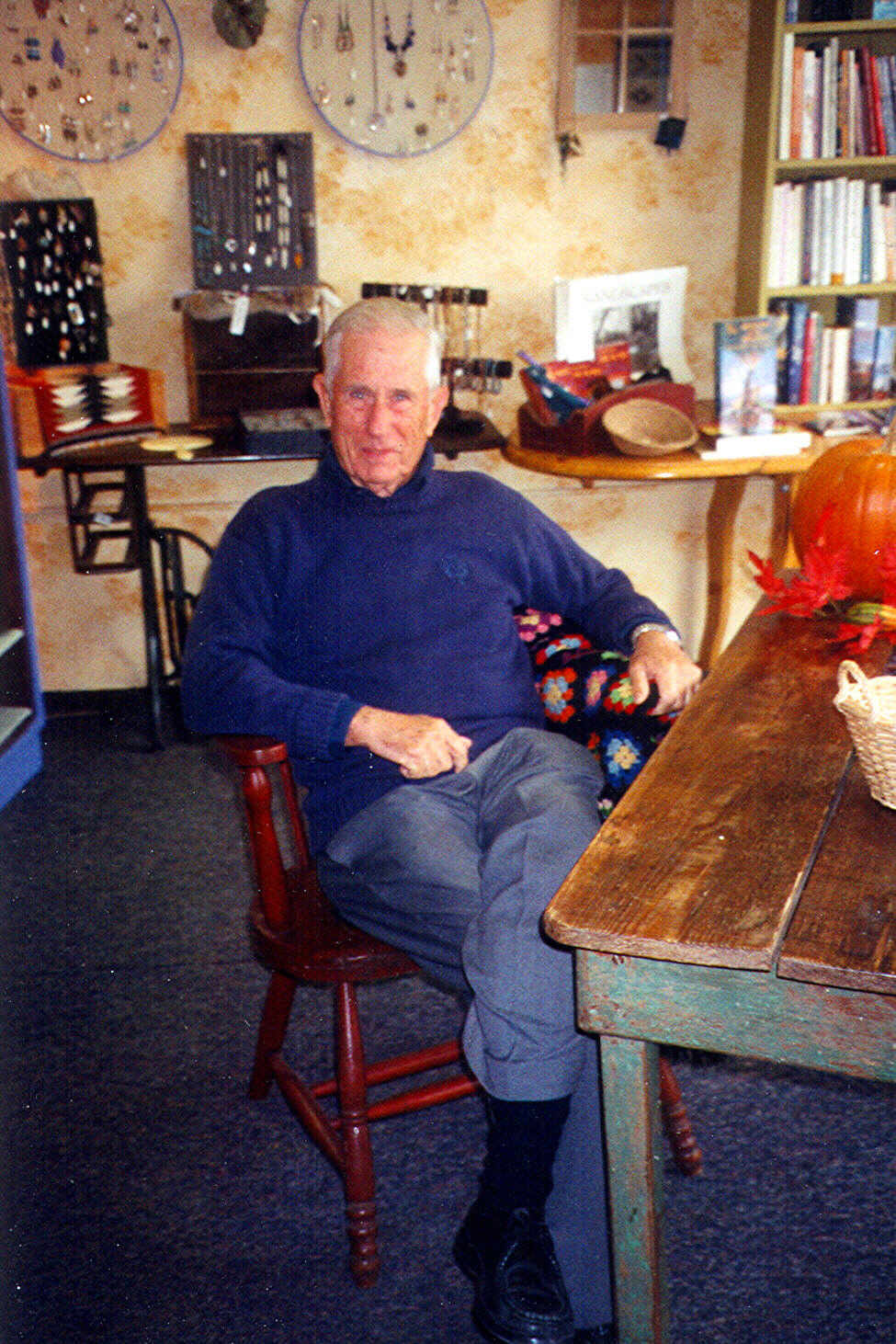
Tom Swiftwater in his "Special Reserved Chair"
at Ronnie Lavache's Indian Shop "On the Wings of Dreams," Shepherdstown, West
Virginia, 1998
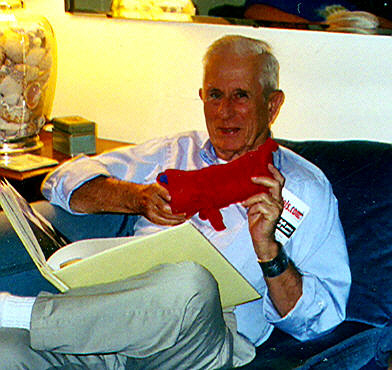
Thomas Swiftwater Holding the Kansas Delaware Wampum Belt in The Blair
Home at Lawrence Kansas in ) October 2004 (Photo by Ken Blair)